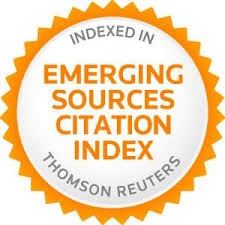Los procesos inferenciales en lectores con síndrome de Down
Resumen
Se pretende conocer el origen de la dificultad para realizar inferencias, en lectores con Síndrome de Down (SD), y si se encuentra en el acceso al conocimiento previo o en la construcción de ideas a partir del conocimiento puramente textual. La muestra fue de 20 alumnos con SD y discapacidad mental leve (media de C.I.= 60) y un grupo control de 20 alumnos sin déficit cognitivo, igualados en edad mental lectora con la Prueba de Evaluación del Retraso Lector (media 8 años). Creamos dos situaciones experimentales: a) los sujetos tenían que generar inferencias basadas en el conocimiento físico; b) inferencias acerca del conocimiento social. Se evaluó la capacidad de verificación y tiempos de reacción en la activación de inferencias También se analizó la influencia del efecto priming en ambas situaciones experimentales. Resultados: a) tasa de inferencias correctas similar en las tareas de verificación entre ambos grupos; b) los sujetos con SD tardan más en acceder al conocimiento textual que al previo; c) los tiempos de reacción de los sujetos con SD fueron mayores en la activación de inferencias de carácter físico; d) los sujetos sin déficit se beneficiaron del efecto priming; e) los sujetos con SD sólo mejoran el TR en las inferencias sociales.
Palabras clave
Referencias
Aguado, G., Ripoll, J.C., Zazu, J. y Saralegui, B. (2007). Intervención eficaz en la comprensión lectora en alumnos con trastornos de aprendizaje y sin ellos: estimulación de los procesos inferenciales. En J.N. García Sánchez (Coord.), Dificultades del desarrollo. Evaluación e intervención. Madrid: Pirámide.
Brown, A. L. (1978). Metacognitive development and reading. En R.Spiro, B.Bruce y W.Brewer (Eds.), Theoretical issues in reading comprehension. Hillsdale, New Jersey: L.Erlbaun.
Butterfield, E.C. y Belmont, J.M. (1977). Assessing and improving the retarded. En N.R. Ellis (Ed). International review of research in mental retardation. Vol. 7, New York: Academic Press.
Butterfield, E. C. y Nelson, G. D. (1989). Theory and Practice of Teaching for Transfer. Educational Technology Research and Development, 37 (3), 5-38.
http://dx.doi.org/10.1007/BF02299054
Butterfield, E. C., Wambold, C. y Belmont, J. M. (1973).On the theory and practise of improving short-term memory. American Journal of Mental Deficiency 77, 654-659.
Cain, K. y Oakhill, J. (2006). Profiles of children with specific reading comprehension difficulties. British Journal of Educational Psychology, 76, 683-696.
http://dx.doi.org/10.1348/000709905X67610
Cain, K., Oakhill, J. y Bryant, P. E. (2004). Children's reading comprehension ability: Concurrent prediction by working memory, verbal ability, and component skills. Journal of Educational Psychology, 96, 31-42.
http://dx.doi.org/10.1037/0022-0663.96.1.31
Cain, K. Oakhill, J. y Lemmon, K. (2004). Individual differences in the inference of word meanings from context: the influence of reading comprehension, vocabulary knowledge, and memory capacity. Journal of Educational Psychology, 96, 671-681.
http://dx.doi.org/10.1037/0022-0663.96.4.671
Campione, J. C. y Brown, A. L. (1978). Toward a theory of intelligence: contributions from research with retarded children. Intelligence, 2 (3), 279-304.
http://dx.doi.org/10.1016/0160-2896(78)90020-X
Campione, J. C. y Brown, A. L. (1979). Toward a theory of intelligence : contributions from research with retarded children. En P. H. Mussen (Ed.), Handbook of Child Psychology, (Vol. III, pp. 77-166). New York : John Wiley & Sons.
Davis, A. (2008). Children with Down Syndrome: Implications for Assessment and Intervention in the School. School Psychology Quarterly, 23(2), 271-281.
http://dx.doi.org/10.1037/1045-3830.23.2.271
Feuerstein, R.; Rand, Y, Hoffman, M. B. y Miller, R. (1980). Instrumental Enrichment: an intervention program for cognitive modifiability. Baltimore: University Park Press.
Ford, J. A. y Milosky, L. A. (2008). Inference Generation during Discourse and Its Relation to Social Competence: An Online Investigation of Abilities of Children with and without Language Impairment. Journal of Speech, Language, and Hearing Research, 51(2), 367-380.
http://dx.doi.org/10.1044/1092-4388(2008/027)
Galeote, M.; Soto, P.; Checa, E.; Gómez, A. y Lamela, E. (2008). The Acquisition of Productive Vocabulary in Spanish Children with Down Syndrome. Journal of Intellectual & Developmental Disability, 33(4), 292-302.
http://dx.doi.org/10.1080/13668250802441870
Graesser, A.C., Singer, M. y Trabasso, T. (1994) Constructing Inferences during Narrative Text Comprehension. Psychological Review, 101, 3, 371-395.
http://dx.doi.org/10.1037/0033-295X.101.3.371
Heath, M.; Grierson, L.; Binsted, G. y Elliott, D. (2007). Interhemispheric Transmission Time in Persons with Down Syndrome. Journal of Intellectual Disability Research, 51 (12), 972-981.
http://dx.doi.org/10.1111/j.1365-2788.2007.01009.x
Jarrold, Ch., Thorn, A. S. y Stephens, E. (2009). The Relationships among Verbal Short-Term Memory, Phonological Awareness, and New Word. Learning: Evidence from Typical Development and Down Syndrome. Journal of Experimental Child Psychology, 102(2), 196-218.
http://dx.doi.org/10.1016/j.jecp.2008.07.001
Kintsch, W. (1988) The role of knowledge in discourse comprehension: A construction-integration model. Psychological Review, 95, 2, 163-182.
http://dx.doi.org/10.1037/0033-295X.95.2.163
Kintsch, W. (1993) Information accretion and reduction in text processing: Inferences. Discourse Processes, 16, 193-202.
http://dx.doi.org/10.1080/01638539309544837
Mckoon, G. y Ratcliff, R. (1992) Inference During Reading. Psychological Review, 99, 3, 440-466.
http://dx.doi.org/10.1037/0033-295X.99.3.440
León, J.A. y van den Broek, P. (2000) Las inferencias a través de los modelos de comprensión. Criterios de taxonomia. En J.A. León (Ed.), La comprensión del discurso escrito a través de las inferencias: claves para su investigación. Barcelona: Paidós
Levorato, M., Roch, M. y Beltrame, R. (2009). Text Comprehension in Down Syndrome: The role of Lower and Higher Level abilities. Clinical Linguistics & Phonetics, 23 (4) p285-300.
http://dx.doi.org/10.1080/02699200802673259
Lott, I. y Dierssen, M. (2010). Cognitive deficits and associated neurological complications in individuals with Down's syndrome. The Lancet Neurology,9 (6),623-633.
http://dx.doi.org/10.1016/S1474-4422(10)70112-5
Mahoney, G., Perales, F., Wiggers, B. y Herman, B. (2006). Responsive Teaching: Early Intervention for Children with Down Syndrome and Other Disabilities. Down Syndrome Research and Practice, 11 (1) 18-28
Maldonado, A., Sebastián, E. y Soto, P. (1992). Prueba de Evaluación del Retraso en Lectura (PEREL). Madrid: Universidad Autónoma de Madrid.
Martín-Caro, L. y Otero, P. (1999). Retraso Mental. Historia y caracterización. En J.N. García Sánchez (Coord), Intervención Psicopedagógica en los Trastornos del Desarrollo. Madrid: Pirámide.
Molina, S. y Arraiz, A. (1993). Procesos y estrategias cognitivas en niños deficientes mentales. Madrid: Pirámide.
Otero, J.C., León, J.A. y Graesser, A.C. (2000) The Psychology of the scientific text. New York: Erlbaum
Price, J, Roberts, J., Vandergrift, N. y Martin, G. (2007) Language Comprehension in Boys with Fragile X Syndrome and Boys with Down Syndrome. Journal of Intellectual Disability Research, 51(4) p318-326.
http://dx.doi.org/10.1111/j.1365-2788.2006.00881.x
Roberts, J. E.; Price, J y Malkin, Ch. (2007). Language and Communication Development in Down Syndrome. Mental Retardation and Developmental Disabilities Research Reviews, 13(1), p.26-35
http://dx.doi.org/10.1002/mrdd.20136
Rondal, J. A. y Ling, D.R. (1996). Casos de lenguaje excepcional en el retraso mental y el síndrome de Down: Perspectivas explicativas. Revista de Logopedia, Foniatría y Audiología Vol. 17 (4) p. 227-243.
Saldaña, D. y Frith, U.(2002). Do readers with autism make bridging inferences from word knowledge?. Journal of Experimental Child Psychology, 96 (4), p310-319.
http://dx.doi.org/10.1016/j.jecp.2006.11.002
Schacter, D.L. (1995). Priming and multiple memory systems: perceptual mechanisms of implicit memory. En D.L. Schacter y E. Tulving (Eds.). Memory Systems 1994 (pp. 233-268). Massachusetts: MIT Press.
Schalock, R. L. (1999). Hacia una nueva concepción de la discapacidad. III Jornadas Científicas de Investigación sobre personas con discapacidad. Salamanca: Amarú.
Sharkey, A.J. y Sharkey, N.E. (1992) Weak contextual constrains in text and word priming. Journal of Memory and Language, 31, 507-524.
http://dx.doi.org/10.1016/0749-596X(92)90028-V
Singer, M., Halldorson, McLear, J.C. y Andrusiak, P. (1992). Validation of causal bridging inferences, Journal of Memory and Language 31, pp.507-524.
http://dx.doi.org/10.1016/0749-596X(92)90026-T
Sternberg, R. J. (1985). A triarchic theory of human intelligence. New York: Cambridge University Press.
Troncoso, M.V. (1992). El aprendizaje de la lectura y escritura: Pasado, presente y futuro en España. Revista Síndrome de Down, 9:8-12.
Troncoco, M.V., del Cerro M. (1991). Lectura y escritura de los niños con síndrome de Down. En Flórez, J. y Troncoso, M.V. (Eds.), Síndrome de Down y Educación (pp. 89-122). Barcelona: Masson y Fundación Síndrome de Down de Cantabria.
Troncoso, M.V. y del Cerro, M. (1998) Síndrome de Down: Lectura y escritura. Barcelona: Masson.
Wishart, J. G.; Willis, D. S.; Cebula, K. R. y Pitcairn, T.K. (2007). Collaborative Learning: Comparison of Outcomes for Typically Developing Children and Children with Intellectual Disabilities. American Journal on Mental Retardation, 112(5) p 361-374.
http://dx.doi.org/10.1352/0895-8017(2007)112[0361:CLCOOF]2.0.CO;2
Enlaces refback
- No hay ningún enlace refback.


